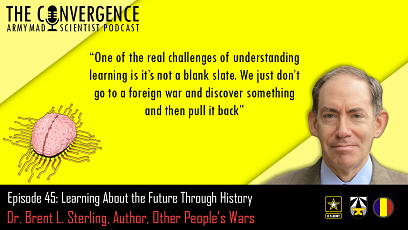[Editor’s Note: Army Mad Scientist is pleased to feature our latest episode of The Convergence podcast, with Brent L. Sterling, Adjunct Professor at Georgetown University’s Edmund A. Walsh School of Foreign Service and author of Other People’s Wars: The US Military and the Challenge of Learning from Foreign Conflicts, discussing how militaries learn (or don’t!) from foreign conflicts, what pitfalls await those trying to learn from historical conflicts, how focusing only on “relevant” observations hampers our creativity in analyzing warfare, and what strategists can do to avoid past mistakes. Enjoy! (Please note that this podcast and several of the embedded links below are best accessed via a non-DoD network due to network priorities for teleworking)]
[If the podcast dashboard is not rendering correctly for you, please click here to listen to the podcast.]
 Brent L. Sterling has been an adjunct lecturer at the Edmund A. Walsh School of Foreign Service at Georgetown University for the past twenty years, teaching courses on security studies, military strategy, and operations. He is the author of Other People’s Wars: The US Military and the Challenge of Learning for Foreign Conflicts and Do Good Fences Make Good Neighbors? What History Teaches Us about Strategic Barriers and International Security. Dr. Sterling has spent the past thirty years as a defense analyst, including positions at the Central Intelligence Agency and consulting firms working for the U.S. Department of Defense.
Brent L. Sterling has been an adjunct lecturer at the Edmund A. Walsh School of Foreign Service at Georgetown University for the past twenty years, teaching courses on security studies, military strategy, and operations. He is the author of Other People’s Wars: The US Military and the Challenge of Learning for Foreign Conflicts and Do Good Fences Make Good Neighbors? What History Teaches Us about Strategic Barriers and International Security. Dr. Sterling has spent the past thirty years as a defense analyst, including positions at the Central Intelligence Agency and consulting firms working for the U.S. Department of Defense.
In our interview with Dr. Sterling, we discuss how militaries learn (or don’t!) from foreign conflicts, what pitfalls await those trying to learn from historical conflicts, how focusing only on “relevant” observations hampers our creativity in analyzing warfare, and what strategists can do to avoid past mistakes. The following bullet points highlight key insights from our interview:
-
-
-

Source: Georgetown University Press, March 2021 In Other People’s Wars, Dr. Sterling provides a longitudinal evaluation spanning the 19th and 20th centuries on what the U.S. military learned from foreign conflicts. Exploring the Crimean, Russo-Japanese, Spanish Civil, and Yom Kippur Wars as use cases, Dr. Sterling identifies how effectively the U.S. assimilated key lessons from each of these conflicts and developed responsive capabilities across doctrine, organization, training and education, materiel, leadership, personnel, facilities, and policy (DOTMLPF-P); drew erroneous conclusions; or failed to act altogether. Importantly, Dr. Sterling compares the success of learning from these wars across the U.S. Army, Navy, and Air Force.
-
-
-
-
- Studying foreign conflicts allows the U.S. military to learn about new technologies, their applications, and novel problem sets, facilitating proactive responses to problems before they are encountered in the field.
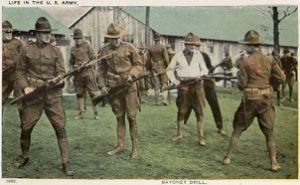 For example, at the beginning of the 20th century, the U.S. Army was reconsidering the future of the bayonet. Observations from the Russo-Japanese War, where knife fighting was prevalent — especially in night assaults, given the heightened risk of friendly fire — led Army Leaders to determine that the weapon was still relevant, and should be maintained.
For example, at the beginning of the 20th century, the U.S. Army was reconsidering the future of the bayonet. Observations from the Russo-Japanese War, where knife fighting was prevalent — especially in night assaults, given the heightened risk of friendly fire — led Army Leaders to determine that the weapon was still relevant, and should be maintained.
- Studying foreign conflicts allows the U.S. military to learn about new technologies, their applications, and novel problem sets, facilitating proactive responses to problems before they are encountered in the field.
-
-
-
- Learning from foreign wars can be a challenging endeavor, as it frequently runs counter to deeply-rooted institutional biases. Services’ culture and bureaucratic politics can limit the implementation of lessons learned from other nations’ conflicts. Insufficient access to information can also prevent the Services from fully appreciating the important implications of remote conflicts involving less than peer adversaries.
-
-
-
-
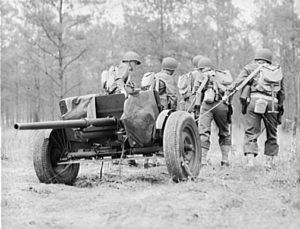
The Enemy Gets a Vote –– U.S. Army 37mm M3 AT Gun at Ft. Benning, GA. Continued improvement of German armor, spurred in part by the Condor Legion’s lessons learned during the Spanish Civil War, quickly rendered our primary AT gun ineffective in the Mediterranean and European Theaters of Operation during WWII. The U.S. military also needs to be mindful that other observers learn from foreign conflicts, too. For example, while the U.S. Army learned of the importance and adopted Anti-Tank (AT) guns from observing combatants during the Spanish Civil War, these weapons were quickly rendered obsolete by what other powers observed in this conflict, largely rendering AT guns ineffective by the advent of WWII. Thus, considering the viewpoint from other observers is critical in preparing for the next war.
-
-
-
-
- Cooperation with foreign combatants is more important than direct observation when trying to learn from foreign wars. Access to information and contextual perspective can allow for understanding of the conflict without requiring direct U.S. presence.
-
-
-
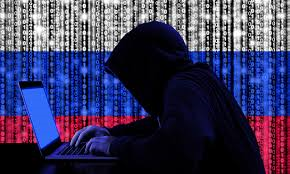 Increased levels of disinformation will make learning and effective decision-making more challenging, especially under the time pressure induced by conflict.
Increased levels of disinformation will make learning and effective decision-making more challenging, especially under the time pressure induced by conflict.
-

Stay tuned to the Mad Scientist Laboratory for the debut our new The Convergence podcast series entitled “How They Fight.” Our first episode will focus on Russia and feature subject matter experts from CNA, Center for a New American Security, Georgetown University’s Center for Security and 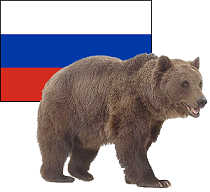 Emerging Technology, and the TRADOC G-2 discussing how Russia fights, addressing unmanned and autonomous systems, maneuver warfare, special operations, cyber warfare, information operations, proxy forces, and more!
Emerging Technology, and the TRADOC G-2 discussing how Russia fights, addressing unmanned and autonomous systems, maneuver warfare, special operations, cyber warfare, information operations, proxy forces, and more!
If you enjoyed this post, check out the following related content:
The Case for Restructuring the Department of Defense to Fight in the 21st Century
Top Attack: Lessons Learned from the Second Nagorno-Karabakh War and associated podcast
Insights from the Nagorno-Karabakh Conflict in 2020 (Parts 1 and 2)
The Convergence: The Future of Ground Warfare with COL Scott Shaw and associated podcast
Lessons from the Cold War: “The Ugly American” and Multi-Domain Operations
Why the Next “Cuban Missile Crisis” Might Not End Well: Cyberwar and Nuclear Crisis Management
Jomini’s Revenge: Mass Strikes Back!
Making the Future More Personal: The Oft-Forgotten Human Driver in Future’s Analysis
>>>> REMINDER: Army Mad Scientist Fall / Winter Writing Contest: Crowdsourcing is an effective tool for harvesting ideas, thoughts, and concepts from a wide variety of interested individuals, helping to diversify thought and challenge conventional assumptions. Army Mad Scientist seeks to crowdsource the intellect of the Nation (You!) with our Fall / Winter Writing Contest’s two themes — Back to the Future and Divergence – check out the associated writing prompts in the contest flyer and announcement, then get busy crafting your submissions — entries will be accepted in two formats:
Written essay (no more than 1500 words, please!)
Tweet @ArmyMadSci, using either #MadSciBacktotheFuture or #MadSciDivergence
We will pick a winner from each of these two formats!
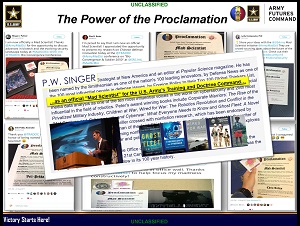 Contest Winners will be proclaimed official Mad Scientists and be featured in the Mad Scientist Laboratory. Semi-finalists of merit will also be published!
Contest Winners will be proclaimed official Mad Scientists and be featured in the Mad Scientist Laboratory. Semi-finalists of merit will also be published!
DEADLINE: All entries are due NLT 11:59 pm Eastern on January 10, 2022!
Any questions? Don’t hesitate to reach out to us — send us an eMail at: madscitradoc@gmail.com
Disclaimer: The views expressed in this blog post do not necessarily reflect those of the Department of Defense, Department of the Army, Army Cyber Institute, the U.S. Military Academy, Army Futures Command (AFC), or U.S. Army Training and Doctrine Command (TRADOC).

